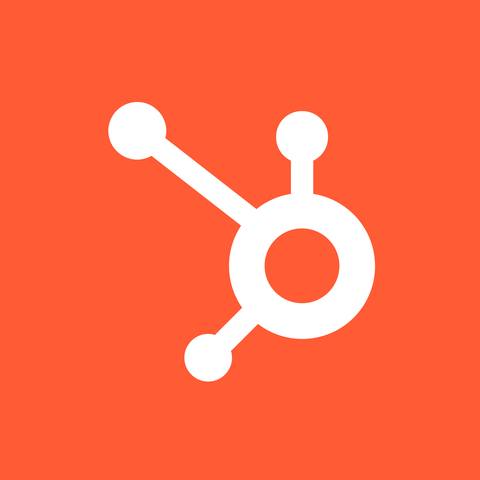

Amplitude Analytics Reviews & Product Details
Amplitude is an analytics tool designed to support businesses by helping them understand user behavior and giving them key insights that can help them improve their products. It offers tools such as behavior tracking, funnel analysis, as well as A/B testing that combines to help companies make data-driven decisions that optimize products and drive business growth.

| Capabilities |
|
|---|---|
| Segment |
|
| Deployment | Cloud / SaaS / Web-Based, Mobile Android, Mobile iPad, Mobile iPhone |
| Training | Documentation |
| Languages | English |

Amplitude is extremely powerful. Since we launched our first Amplitude project in October 2022, it has helped our organization answer simple and complex analytic questions in a matter of minutes, instead of the usual hours or days we needed in the past. I like how playful the tool is, all the possibilities to segment data (by event, user and group properties), how easy it is to build a funnel or investigate the user flows leading to a conversion. I also love how easy it is to share results and how my stakeholders (Product Managers, Designers, Researchers, Engineers) can easily slice and dice the data further after getting the reports. Also, charts embed quite nicely in Slack and Miro boards, so consumption of Amplitude charts is super easy. Last but not least: the support I got from Implementation and Customer Success team during the set up and now adoption phase of the project has been invaluable!
I wish Amplitude would offer more possibilities to fix data that has been already sent. For example, if I send one day of data, and the data is wrong, I cannot edit that data. Instead, I need to add a drop filter to remove that data, send the data again, and incurr in this additional cost. Ideally, there would be an easier way to edit the data without paying for it.
Amplitude is solving 3 key problems, in my opinion. The first one: Knowing what questions to ask your data, in order to improve your product. Amplitude's variety of pre-made analysis makes it easy to know what questions to ask to your data, without getting lost in a rabbit hole of vanity metrics. The second one: Providing insights when it matters (in minutes, not hours or days), as its highly performant architecture allows crunching data in record speed. The third one: Collaboration. I have never worked with a tool that makes it so easy to share and collaborate around data. It beats the experience of building your own custom dashboard in BI tools.
the number of graphics possible. The ease with which everyone can understand. The support we receive from the Product Minds Team with every doubt we have.
We track events from 3 different platforms. Android, iOS and web. Many times there are differences between them. I would like to receive an alert of these differences when doing an analysis. Example, if I make a funnel where a first event is tracked on all platforms, but the second is only tracked on one, the funnel will show a huge drop, which is actually because the second event is not tracked on all platforms. Users who do not follow the day-to-day taxonomy do not realize these things.
It helps us prioritize the needs of all teams. And then validate the impact of our actions. With Amplitude we spent time doing really helpfull features.
Gives the entire company the ability to quickly dive into the data we own, and make better decisions together. Support always makes sure we have the resources we need.
lack of support for custom proxy support in the chrome extension. Steep learning curve.
A/B testing, Prediction, Improving retention.
Amplitude is very intuitive to create charts with events in real time. It also very good for AB test. It has a very good number of different charts and helps a lot with data self service.
It could be more clear with inactive events, and also Amplitude should not allow creating an event without a description. But I understand that this may be a problem with the creation of the event, not with Amplitude.
Amplitude is solving the problem of monitoring and tracking events in real-time. Also helps a lot with AB tests, and It`s intuitive for people with different expertise.
Amplitude Analytics has a very intuitive UI and it's extremely easy to create analyses of anything that goes on in your product once it's properly set up.
Some things I would have liked to track are not processable without the help of a dedicated Data Analyst.
We keep a clear overview of our product's KPI, and it's also easy to spot issues in Production through behavior changes.
It's usability, everyone from all different departments and data-knowledge can use amplitude to get insights. It reduces the reliances on data science and analyst members of the organisation, enabling them to work on more complex problems.
There's some onboarding and effort to convince people it's worth their time to learn the different events/segmentation models.
Allows me easy and fast access to customer behaviour and data that enables me to make business decisions quickly and independently.
Easy to use, quick support, and new product offerings as per the market trend.
Sometimes they are down and slow. And bugs on new features.
Gives me the complete status of our game, players and how new features are performing.
Amplitude Analytics helped our company get a deeper understanding of user behavior in a way we did not have previously. Amplitude Experiments has completely changed how we test and launch next features and helped our product org be more data-driven when it comes to making decisions. Amplitude's tools are accessible and easy to use while being incredibly powerful under the hood.
Amplitude had a slightly higher barrier to entry when it comes to implementation and pricing but you get what you pay for and once our team was familiar with the implementation it became easy for us to add new tracking over time. Their Data tool is also great for self-service changes that product managers, etc, can leverage without needing engineering intervention.
We're now able to evaluate and test new opportunities in a scientific test and learn methodology that we were previously unable to. We are able to arm our internal and external teams with data and insights about adoption, performance, activation, retention, etc in a way that is simple and easy to understand.
It's so easy to use, no code needed - which helps us also create a data-driven environment within the company.
Sometimes I do want to create some charts that are not available - LTV, more flexible ARPU charts, etc. I know it's not a BI tool, but since all our data is sent to Amplitude and it became our tool for data visualization, these BI capabilities are missing.
Comparison between groups of users, monitoring KPIs (in general and over time), alerting us regarding bugs and issues in the data and the product, and creating simple visualizations that are easy to understand also for employees that are not necessarily data-persons.
I can analyze everything, easily, and get very important insight that helps us get decisions.
In the funnel view, I would like to have a CVR between every step in the funnel, and not just to the total CVR.
Analyzing, reports, funnels, and decision making.
Amplitude has helped us better understand the users' behavior across our app. It can tell us the biggest hurdles in our funnel process and where they are doing.
It's a tool that needs more widely available training resources, which slows adoption across other teams. Also, it lacks a community hub (or we are not aware of one) where you can discuss everyday use cases or tips to improve analysis
It provides funnel and session base analytics that helps us map the user journey across the app. This has helped us identify the biggest hurdles in our process, which we then improve on. Latter, we can see if those changes improve our metrics
The a/b testing functionality is top-tier compared to competitors in the industry. Additionally, the visualizations in the reports are simple to set up and easy to use. Amplitude reporting is much more intuitive and user-friendly compared to competitors such as Adobe Analytics. I have found that the simple interface helps get more adoption from the organization, particularly leadership and product teams, as everyone is comfortable pulling reports and drilling into data.
Compared to a few similar tools, setting up Amplitude can take a bit more time. However, this personalization ultimately results in a more robust analytics experience. GA can be set up almost instantly with little to no developer assistance, while setting up Amplitude with all necessary events is a bit more intensive.
Funnel reporting is captured elegantly in the platform. Understanding the friction points for sign-up flows and application steps is a big priority for our team and Amplitude data let's us understand where users are falling off and why.
That you can easily share links to charts with others in the team, and build your charts and funnels without any extensive training.
For some of the more complex features, the UX isn't great and could be improved to make it more user friendly
We use it for all product queries. We aim to use amplitude as our source of truth when anyone wants to know anything related to user analytics and how our products behave.
- User experience: Easy to use, good interface. NEW - I really apreciated the feature to mix tables with different data calculation. It's helping me a lot! OLD FEATURES - Segmentation: Possibility to track % of users - Funnel Analysis: Track conversions and drops. - Cohorts: Understand how a particular segment is performing. - Retention: Track how your product is retaining users
- It would be nice to mix data from other sources (ex. csv) into a single amplitude table. I sometimes need to mix data from the product with offline data, and today I have to do it at excel/sheets. - The engagement measurement views are complicated. Don't know exactly how to solve, but I think would be nice to see in a single view the percentage of new users that are returning, and for how long they return. In my case that need to understand the engagement through 24months (avg of real estate contract duration) is difficult to undersand. - The concept of session of amplitude does not work very well in my product. I think that is quite different from the market standarts (ex google analytics). I also would like to be able set the avg time of a session in different journeys.
- Track AB tests at interface. - Track bugs/errors - Understand drop reasons - Understand quantity of users. Amplitude help us to understand data in real time, decreasing the time until resolution/action for product teams. It's the better tool for ir.
Amplitude has a very simple and friendly user interface while offering reach functionality
I would love to have a 'so far so good' feature to track real-time performance. Also better integration with Google docs
Amplitude helps us to get insights into our products and user behavior. It also helps our ops and marketing team to better do their work and track performance
Amplitude's notebooks make it easy to tell a story with the data to support product management decisions and bring the team along on the ride.
the formatting options could be better when building the notebook
keeping the team informed with reasons behind OPM decisions
Amplitude is a one stop experience for all your analytical needs. It is a very good and efficient alternative to Google Analytics and is comparatively cheaper as well. Great UI/UX
The efficency sometimes lack. The documentation has a history of misleading developers in my company. They have standard support which can be improved though...
Amplitude is a one stop experience for all your analytical needs. It is a very good and efficient alternative to Google Analytics and is comparatively cheaper as well. Great UI/UX
Amplitude allows me to be self-sufficient when it comes to pulling critical data for my projects, but on the research side, and in post-project reporting
As a non-technical person, it can take a lot of time by trial and error to find what I need, but it's still better than any other tech I've used for this.
Allows me to quickly pulll critical data to inform product strategy and test a hypothesis, and allows me to track metrics over time.
I love the User look-up tool of Amplitude as it lets me see what actions a user took while they were using our platform, and what the experience was like, it gives me additional data about the user's device, OS, and more which comes super handy sometimes.
I sometimes need to read through a lot of docs or watch a couple of videos to understand how to build a dashboard but once you know it, you're all set. So it'a small learning curve for first timers.
Amplitude helps us solve our analytics problem, we use Amplitude for our internal use where we have dashboard that give unique users using our app each day, week, month, to track growth, it let's us track the actions for a user and makes it really easy to do so as well with just using unique ids. There are more features that I haven't used yet, but my colleagues have built out reporting and metrics tracking using those.
It's easy to use at the beginning because it has a lot of pre-built chart formats and types for it. It has also great tools for advanced analysis and user segmentation.
It would be nice to have the ability to rename some property events under certain circumstances. Sometimes events change and you start seeing a NONE where a new property is now.
Amplitude helps a lot to understand the impact of any experiment we run. It's also very helpful to detect possible errors or maybe some problems with the product itself.






